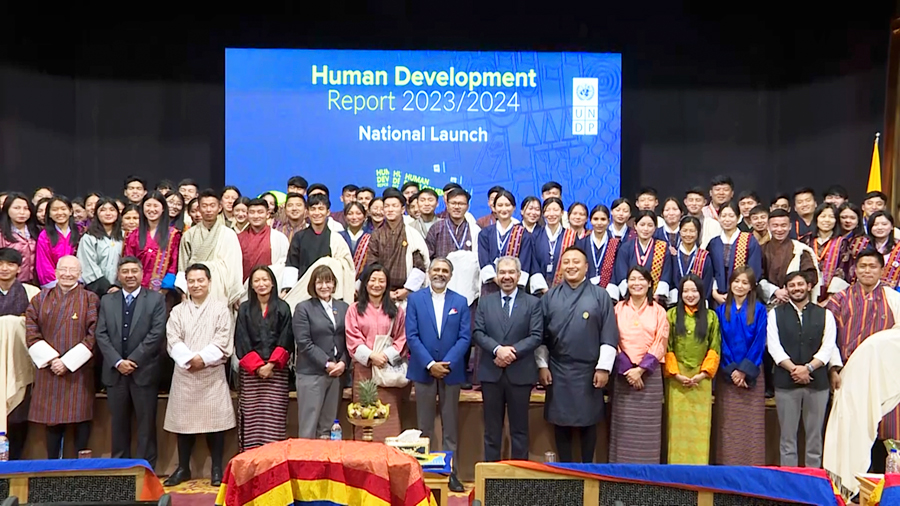
Bhutan’s Human Development Index, HDI has improved by two positions as per the UNDP’s latest Human Development Report. The national launch for Bhutan was conducted today. The Human Development Index is a measurement of a nation’s overall achievement in social and economic dimensions, mainly in life expectancy, education, and standard of living. Globally, the index declined during the pandemic and has increased again in 2022.
Bhutan climbed two positions to 125 in 2022 from 2021’s rank, with a Human Development Index score of 0.681.
In the life expectancy sub-category which is measured in years, Bhutan scored 72.2. The gross national income per capita is 10, 625 Purchasing Power Parity(PPP) dollars.
Bhutan has progressed in health and income indicators while the education indicator has remained same since 2020.
In 2021, Bhutan had a score of 0.666. Bhutan stands in the medium human development category. The rankings are among 193 countries.
“Bhutan jumped two places and this is due to life expectancy and income. That is good news for Bhutan. The life expectancy is also another important indicator. Bhutan’s free health system and education play an important role to enhance Bhutan’s position in the Human Development Index,” said Mohammad Younus, Resident Representative of UNDP.
The Human Development Report 2023-2024 titled “Breaking the gridlock: reimagining cooperation in a polarized world” is based on statistics from 2022.
According to the UNDP, among the 35 Least Developed Countries that experienced a decline in their HDI in 2020-2021, almost 20 have not yet recovered to their human development levels of 2019.
Globally, Switzerland and Norway are leading the ranking while South Sudan and Somalia have the lowest scores in Human Development Index.
The report outlines strategies to address global challenges and improve international cooperation through the establishment of a 21st-century architecture for global public goods delivery, focusing on collaboration between countries. This system would facilitate transfers from richer to poorer nations and also help poorer countries cope with crises that they had little part in generating, as with climate change, according to the report.
The report also suggests countries to combat polarisation by fostering understanding, creating spaces for deliberation, such as citizen assemblies, and employing narrative-based approaches.
It also recommends countries to address agency gaps by empowering individuals and communities, ensuring they have a voice in decision-making processes.
DekiLhazom
Edited by Kipchu









